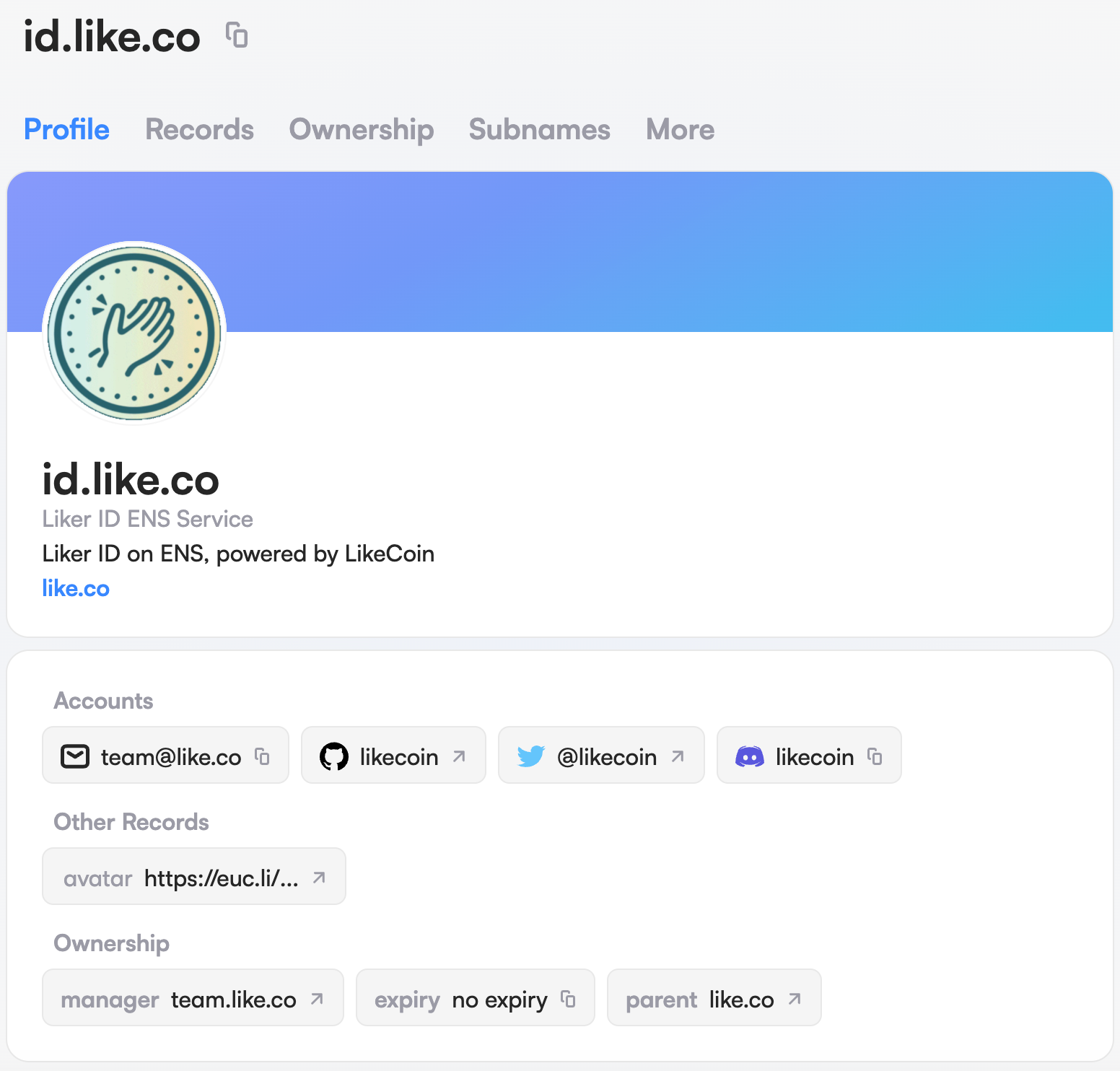Experimental step towards decentralized identity for LikeCoin users
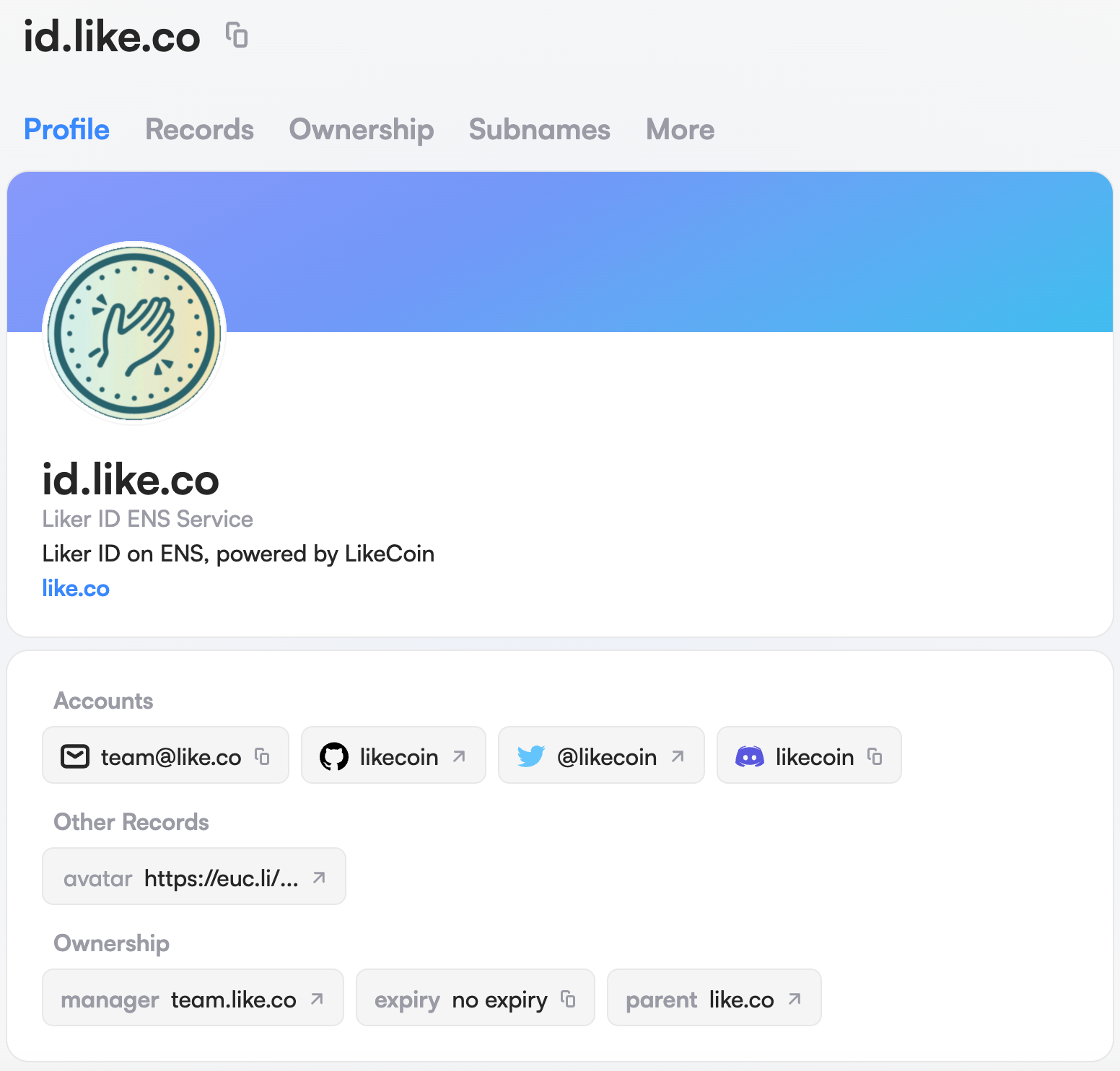
Background
Since its launch in 2018, the LikeCoin project has provided users with a user profile registry API called Liker ID. Users can register their unique user ID using a MetaMask wallet and customize their profile picture and display name. This allows for easy transfer of LIKE ERC-20 tokens to creators using their Liker ID profile page (e.g., https://like.co/ckxpress) instead of remembering long ETH wallet addresses. This feature also facilitated the integration of LIKE transfers without ETH gas (transferDelegated) and LIKE pay as a payment gateway for the creator ecosystem.
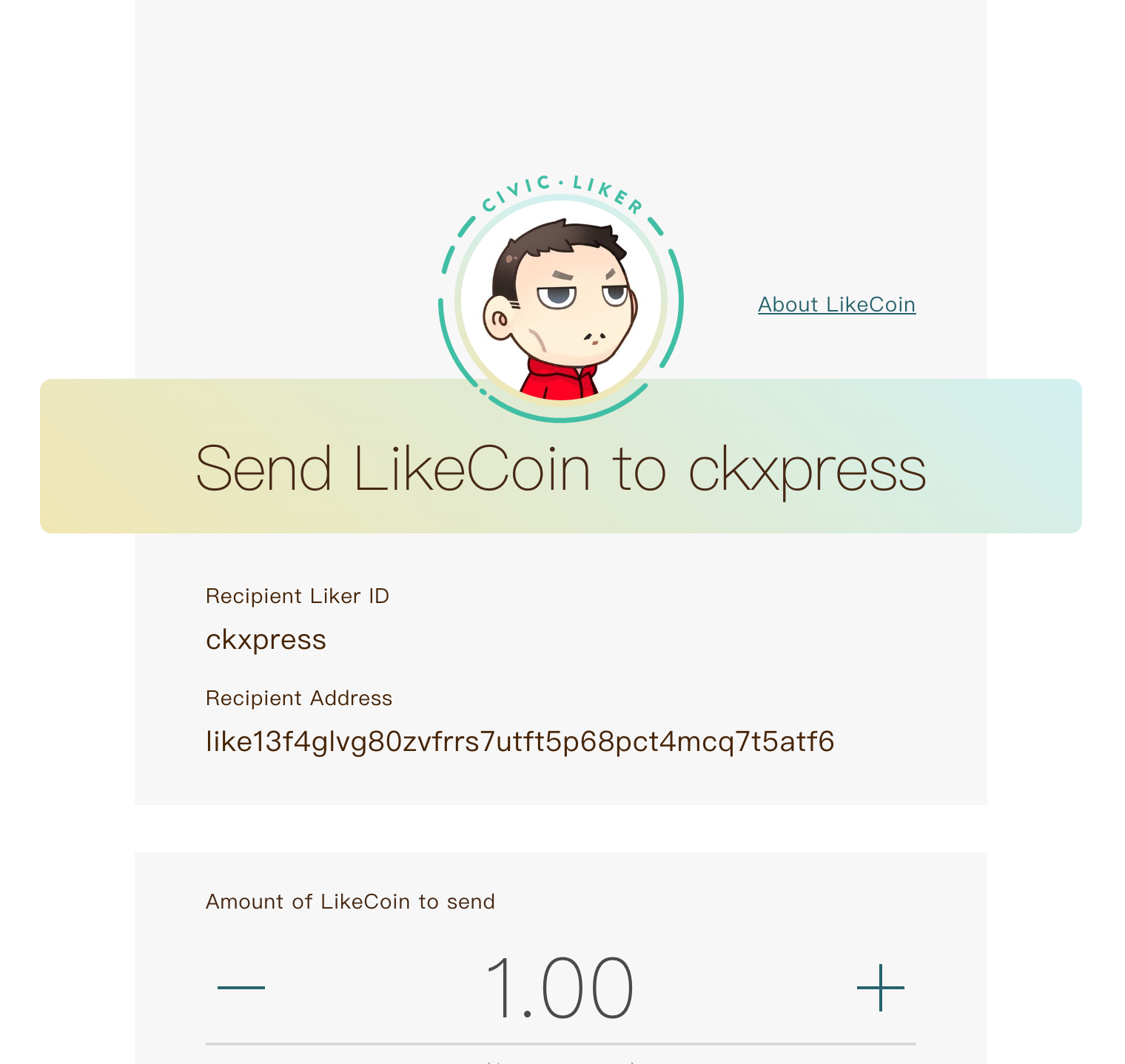
LIKE has been migrated to its own LikeCoin chain within the Cosmos IBC ecosystem since 2020. Liker ID still exists with added support for cosmos prefix bech32 addresses, and later our own like prefix addresses support after the LaiChiKok upgrade. While having our own application chain provides an opportunity to bring Liker ID on-chain, we decided not to reinvent the wheel due to the emergence of various naming and profile systems in the web3 space. As a result, Liker ID remains hosted on a centralized server and database.
What is Decentralized Identity
This brings us to the concept of identity on the blockchain. Liker ID, naming, and profile systems all contribute
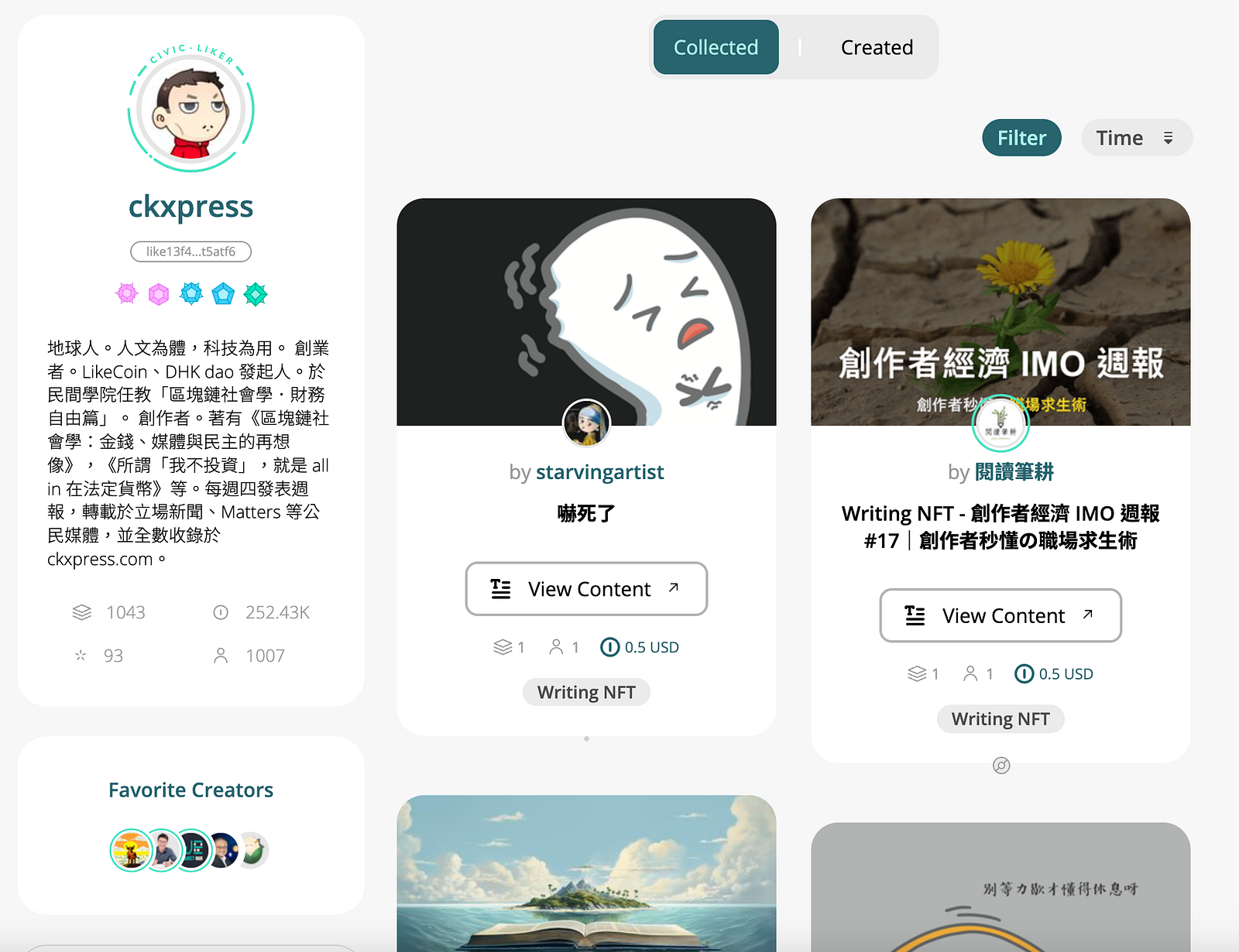
to constructing the foundational layer of a blockchain identity.
In the context of Writing NFT on Liker Land, the portfolio page plays a crucial role. By collecting Writing NFTs created by favourite creators, users not only support their work but also shape their own identities. Others can understand their preferences, likes, and interests by exploring their Liker Land portfolios.
Expanding this concept further, everything individuals do on the internet contributes to their identity, such as Facebook activity, tweets, or linked Google OAuth accounts. Currently, these accounts are owned by the companies providing the services, and they have the power to erase years of internet identity with a single click.
In the web3 world, blockchain technology allows individuals to reclaim ownership of their own identities. By having complete control over their on-chain wallets and profiles, users can guarantee that their activities and collections are securely stored on the blockchain and cannot be tampered with by any third party. These on-chain activities, such as the creators they support and the items they collect, contribute to the construction of their unique on-chain identities.
In an ideal scenario, users would also have control over what others can see on their on-chain profiles, but this requires a discussion on topics like zero knowledge proofs, which can be saved for another day.
Why ENS
ENS (Ethereum Name Service) is one of the first, most well-known, and popular on-chain name service providers. It is primarily associated with .eth names within the Ethereum ecosystem. However, there are three lesser-known facts about ENS that make it attractive in the context of Liker ID: DNS on ENS, multi-chain wallet support, and wildcard + offline resolver.
DNS on ENS allows a DNSSEC-enabled domain to be hosted on ENS and used as a name, similar to any .eth name. For example, “ckxpress.id.like.co” is a valid ENS name that resolves on Ethereum and can be accessed here. Since “like.co” is a valid domain hosted by LikeCoin, opening “ckxpress.id.like.co” in a browser will resolve to ckxpress’s profile page. This provides a unified experience both on and off-chain, reduces user confusion, and allows for greater control over assigning ENS names to existing users.
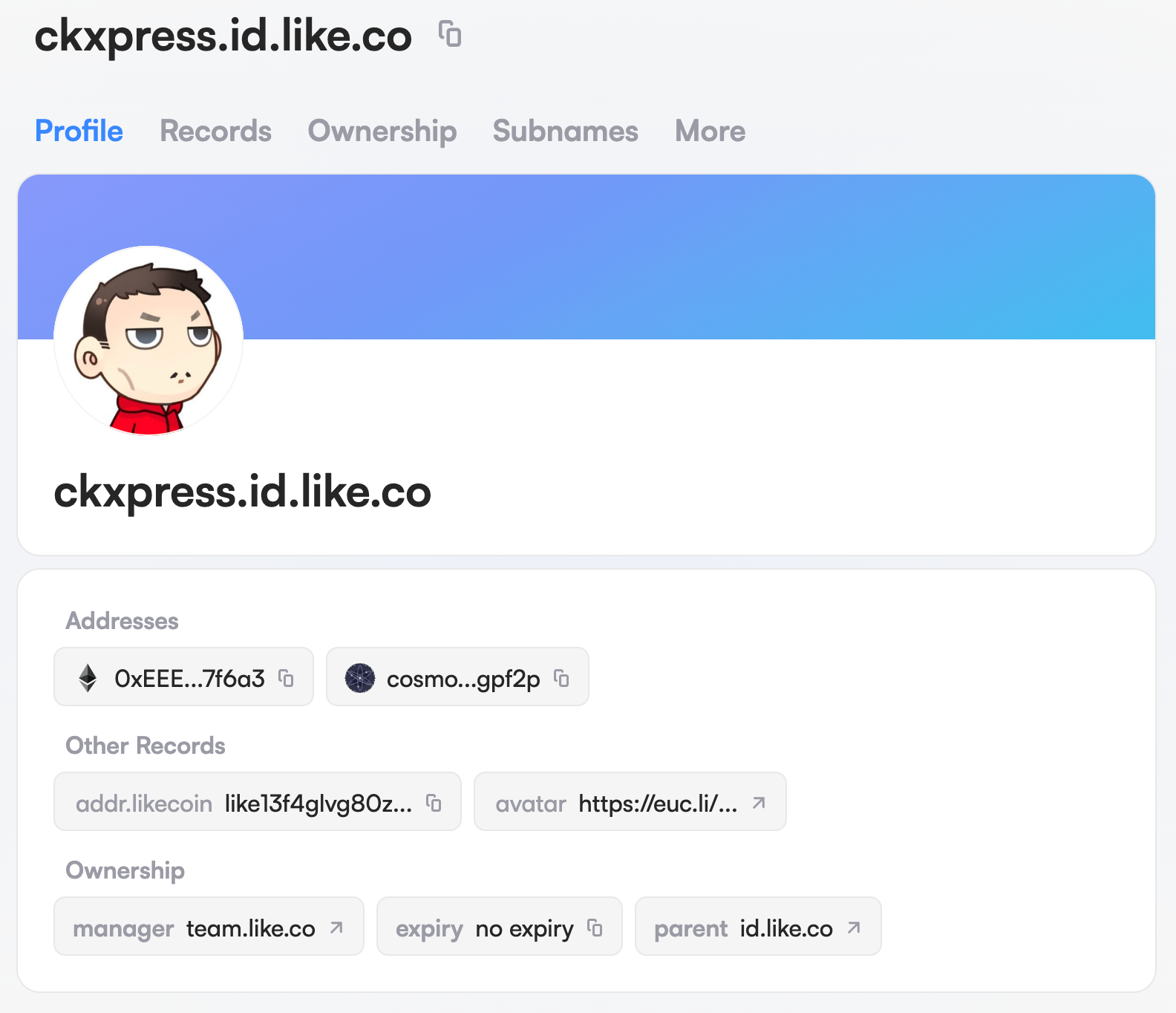
ENS is known for resolving Ethereum addresses, but it officially supports over 100 address formats from different chains. Although the only supported address format for the 118 coin type is ATOM with a cosmos prefix, it can be easily converted to a like prefix using Bech32 when resolving the address in the application. Additionally, ENS allows for custom text records, which can be leveraged to explicitly store LikeCoin addresses. The proposed field for now is “addr.likecoin”.
Lastly, ENS support custom resolvers. ENS provides an official resolver that can be managed on app.ens.domains. However, running it on the Ethereum mainnet requires significant gas fees, it would be costly to migrate and maintain profiles for the large Liker ID user base. Fortunately, two specifications allow for the migration of existing Liker ID users without writing over 100,000 records on Ethereum mainnet. Wildcard resolution enables pointing all “*.id.like.co” queries to a custom resolver, while the offline resolver allows answering wildcard queries using the existing Liker ID databases, significantly reducing the operational and migration costs.
What about (insert other choices here)?
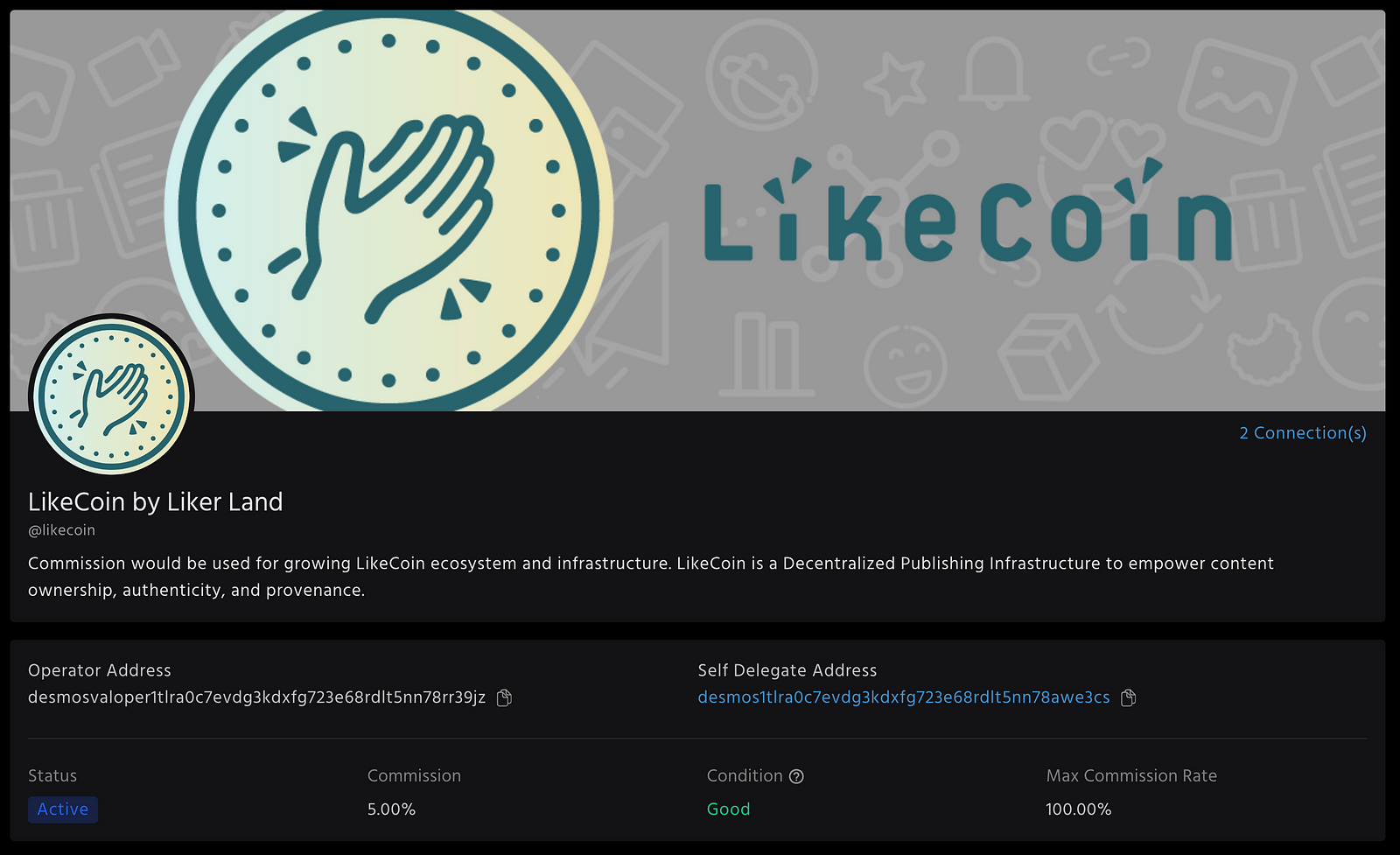
In the cosmos space, there are other naming and profile services available, some of which we have collaborations with, such as Desmos’s Profile, ICNS, and Starname. We chose ENS for this broader decentralized identity (DID) experiment because it offers the simplest path from our centralized API. We plan to integrate more services as we see fit, both from a technical and product perspective.
What is coming next?
Currently, only our team members and selected testers have their own ENS profiles on id.like.co and id.liker.land, and we are still using the default resolver on ENS. We aim to gather early tester feedback on their expectations for ENS and DID, and based on that feedback, we will develop integrations for the LikeCoin ecosystem and Liker.Land.
Our next steps include implementing customer and wildcard resolver functionalities to expand the ENS service to all Liker ID users. We may also allow custom modifications to the Liker ID ENS record through our websites, enabling users to explore different use cases within the ENS/EVM ecosystem.
We are also working on adding support for ENS resolution in liker.land, like.co, and the Liker.Land mobile app. This means that any ENS user who has defined an ATOM or LikeCoin (through addr.likecoin) address in their ENS profile will be able to seamlessly integrate it into our platforms.
In general, we will continue to explore progress and solutions in the DID space, taking more steps towards achieving a fully self-sovereign on-chain Liker ID for readers and creators within the LikeCoin ecosystem.

